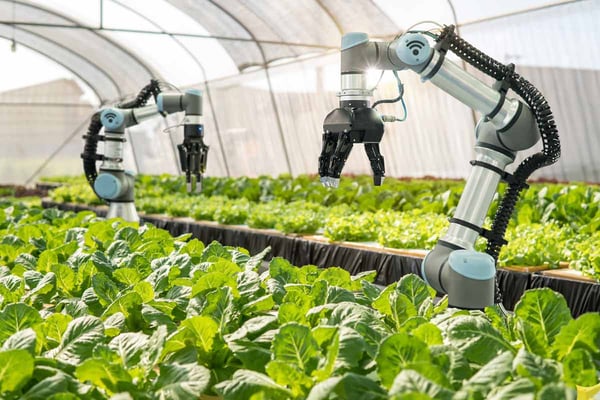
ERP Trends for the Agricultural Industry
The agricultural industry has been characterized by intuition, assumptions, and weather predictions for decades. As technology advances, the agriculture world has begun to advance with it to meet the ever-growing population and demand for increased food supply.
One of the greatest obstacles to overcome for the future of the agricultural industry is how to reduce the impact of unpredictable events that can be detrimental to yields and profitability. This is especially important due to the highly competitive nature of the industry. The agricultural software scene is aimed at improving the farming experience have very specific features to ease processes and improve productivity.
Basic Operations
At the very least, small organizations need to be able to automate their accounting processes to reduce errors and ensure that all information is being accounted for. These ERP systems should be able to track inventory associated with agricultural processes, such as seeds, fertilizers, feed, etc. to make it easier for farmers to focus on how to increase their output, not just on the supplies that they need.
In addition, sales need to be tracked to measure the success of their products and to guarantee supply and demand are being regulated. All this information can be stored in a single system to empower farmers to focus on what is important. It can also facilitate the creation of a payment-ready platform to easily complete transactions.
End-to-end farm activities can also be automated through the right ERP software system. Farmers are able to trace produce from start to finish, from the seeds being shipped in, to the products being sold to stores for sale. This ultimately creates better processes, leading to greater yields, and higher quality produce or products.
Connectivity Features
Depending upon the market and location(s) of operations, technology and the ability to communicate in multiple ways is a requirement.
Many farming ERPs offer the opportunity for the system to connect to smart devices to automate processes. This can include sensors, drones, agribots, as well as other software utilized for agribusiness.
Another great feature of an effective agriculture ERP is multilingual capabilities. Agriculture is a global industry, so it is imperative that individuals across language boundaries should not be hindered by their ability to communicate with one another. A good farming ERP should be multilingual, so this factor does not affect an organization’s ability to grow.
Analytics
As with any industry, agriculture requires the use of analytical information to improve processes and quality. Agricultural ERPs can provide users with customized reports and dashboards with data-based insights.
This analytical software increases access to information for farmers to make carefully crafted yield predictions and cut down maintenance costs. These costs are reduced by evaluating what exactly is needed for production and only allocating resources to the necessities.

Artificial Intelligence & Technical Capabilities
The unpredictability of weather conditions and pests have inhibited farmers in the past, but artificial intelligence and advances in technology have created ways for the agricultural industry to get over these hurdles.
Based upon a collection of data, these systems can assess weather conditions and make more accurate predictions to ensure the success of crops. Artificial intelligence has even advanced to detect the presence of pests to assist farmers in combatting the issue before it gets out of hand.
There are also sensors that can be utilized to measure soil moisture and the need for fertilizers or pesticides for specific plants or plots. This technology facilitates the allocation of resources as needed by breaking trends down into a science. Evaluation shows when and where plants need care, reducing the waste of resources.
The newest trend in agricultural ERP systems is the use of satellite imagery analysis to identify crop diseases, pest attacks, and nutrient deficiencies more quickly and efficiently. Agricultural ERP systems are paving the way for efficient, sustainable farming.
Blockchain Advancements
The right ERP is developed to trace the entire seed-to-sale journey, tracking all steps of operations to build trustworthy supply chains.c Traceability is crucial to the industry, as recall incidents can be detrimental to public health if not handled properly. The agriculture industry heavily coincides with the food and beverage industry. With ever-changing markets, a dynamic and flexible system that can track all steps of the process is vital to the success of farmers.
Summary
As an industry chock-full of variability, the right agriculture-oriented ERP will break down the barriers associated with hindered success. Do not be afraid to ask questions and demand quality. If at any point you find yourself stuck, give ERP Advisors Group a call!





